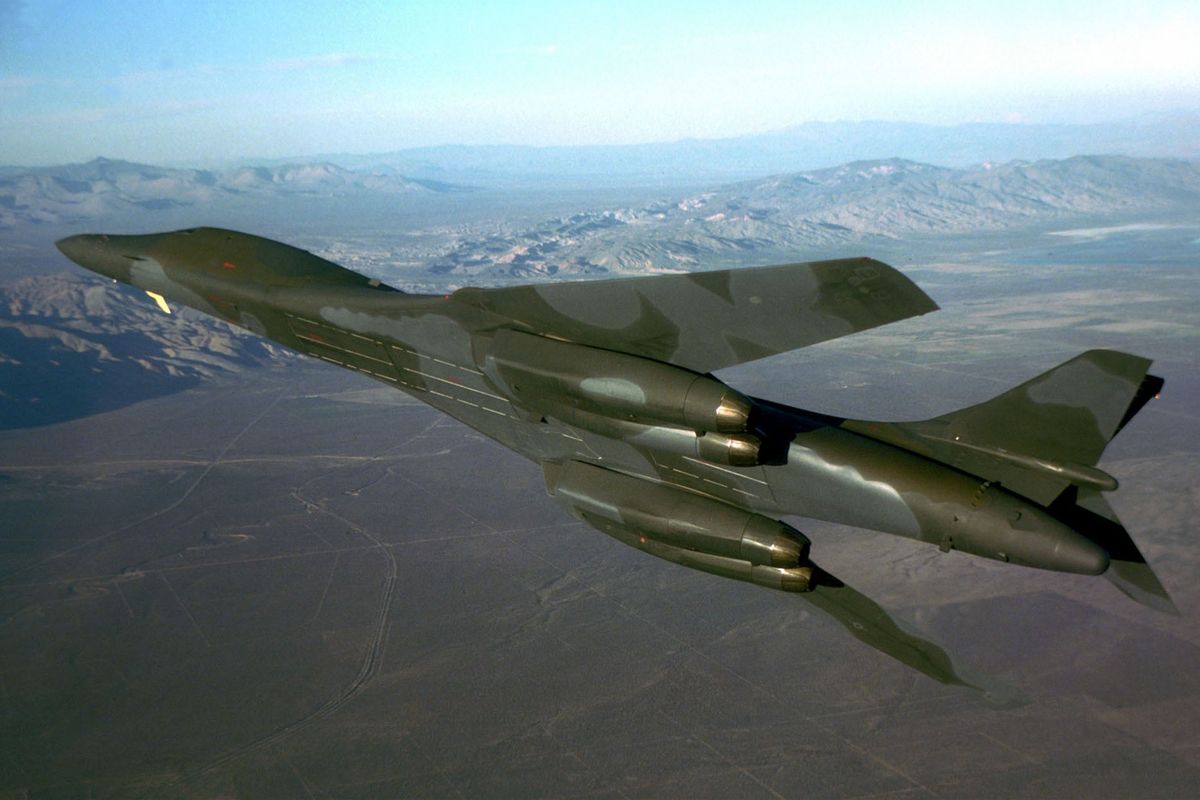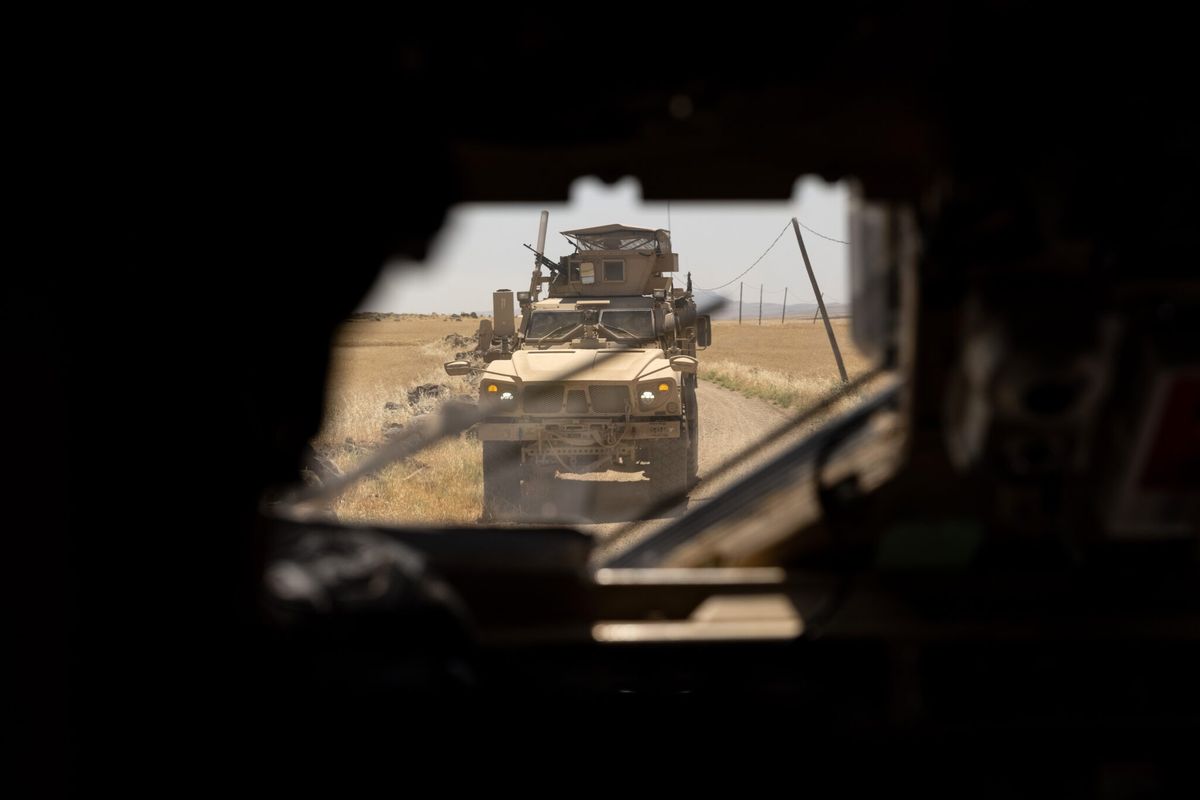When Yitzhak Rabin met with President Gerald Ford on his first visit to Washington as Israel’s Prime Minister in 1974, he sought to cash in on Ford’s earlier promise to him that he would move the U.S. Embassy in Israel to Jerusalem if he ever became president. Ford remembered the vow he made as a member of Congress. Nevertheless, he said, “life looks different from the Oval Office.”
This is a lesson that President Donald Trump is slowly grasping. The businessman who campaigned as an isolationist “America First” candidate is inching toward a realist foreign policy on issues ranging from North Korean nukes to engaging China. Nowhere is this change more apparent than with his Administration’s Syria policy. Trump has grudgingly come around to the realization that vague campaign promises lacking serious deliberation are not enough to grapple with the Gordian knot the country represents.
As a candidate, Trump repeatedly dismissed the idea that the United States should attack Syrian President Bashar al-Assad, or even back the rebels fighting him. In March 2016, he told the New York Times, “I thought the approach of fighting Assad and ISIS simultaneously was madness, and idiocy.” Similarly, in October 2016, he told the Guardian, “we have to do one thing at a time. We can’t be fighting ISIS and fighting Assad. Assad is fighting ISIS. He is fighting ISIS. Russia is fighting now ISIS. And Iran is fighting ISIS … But we can’t be fighting Assad. And when you’re fighting Assad, you are fighting Russia.”
Less than three months into his term, though, Trump carried out an abrupt volte-face, launching 59 Tomahawk missiles against a Syrian air field earlier this month. This move is indicative of a larger shift in his Syria and ISIS policies.
Candidate Trump frequently spoke of a secret ISIS plan. In April 2016, he boasted at a campaign rally, “I have a great plan. It’s going to be great. They ask, ‘What is it?’ Well, I’d rather not say. I’d rather be unpredictable.” He continued employing this subterfuge in September, cryptically saying, “I don’t want to broadcast to the enemy exactly what my plan is.”
By now it is clear that Trump had no secret plan. On Jan. 28, he signed an executive order, giving the Secretary of Defense 30 days to come up with a draft “Plan to Defeat ISIS.” That deadline passed 60 days ago and the President still has yet to reveal his secret plan or announce his military’s proposal.
Bereft of a coherent Syria policy, the Administration has instead adopted an ad hoc approach. It has steadily poured more human resources into Syria in an early sign of classic Vietnam-style mission creep. In March, the military deployed 400 troops from the 11th Marine Expeditionary Unit to Syria to provide pre-positioned fire support to rebels fighting ISIS in Raqqa. At the same time, it dispatched soldiers from the army’s 75th Ranger Regiment to Manbij to carve out a buffer between the Kurds and Turks in what the military has dubbed a “reassure and deter” mission.
A lack of a calibrated policy has led to muddled messaging by his Cabinet officials. For instance, on the same day that the dour Secretary of State Rex Tillerson appeared on Sunday talk shows declaring that the Administration’s chief goal in Syria is to defeat ISIS, the more vocal Ambassador to the United Nations, Nikki Haley, telegraphed that there could be no solution to the Syria conflict with Assad in power.
Part of the Administration’s problem is its inability to staff key bureaucratic positions in Cabinet departments. Members of the “Never Trump” movement – such as Elliott Abrams, proposed for Deputy Secretary of State – have been denied the positions merited by their experience. But even more problematic has been the National Security Council that the President inherited. President Barack Obama’s uber-centralized White House saw the NSC balloon from 200 staffers under President George W. Bush to 400. Now, many of these positions have yet to be filled, depriving the President of key cogs in the decision-making machine.
As a result, it has been impossible for Trump to craft an overarching Syria policy beyond putting out brush fires. Instead, the President appears to have given the military carte blanche to implement its plans with limited civilian oversight. This has led to risky bombing campaigns in Iraq and Syria, resulting in significant collateral damage.
An integral principal guiding Trump’s Syria views is politics. When Bush took power in 2000, he employed an ABC foreign policy – Anything But Clinton. From disengaging with the Arab-Israeli peace process to wrestling Venezuelan populism, he took positions that glaringly contrasted with his predecessor. Trump’s strategy is similar. During the campaign and afterward, Trump lambasted Obama’s weak foreign policy and reluctance to protect American interests. Thus, when the Syrian government dropped sarin gas in Khan Sheikhun, Trump was compelled to respond, even though he urged his predecessor against taking action the last time Syria employed large-scale chemical weapons in 2013. For Trump, it is better to be instinctive and decisive rather than cerebral and deliberative like his predecessor.
One sacrificial lamb of this approach is the prospect of collaboration with Russia, which Trump made a cornerstone of his campaign. Moscow’s intransigent Syria policy and its incredulous position that rebels, rather than the Syrian government, were responsible for the Khan Sheikhun sarin attack have rendered an anti-ISIS alliance with Moscow untenable. Realism, rather than wishful thinking, has now partially sobered Trump to the realities of foreign policy. Perceived interests, rather than genuine ones, guide zero-sum decision-making. This is a mind-boggling concept to the President, who came of age in a business world where win-win scenarios predominated and the greatest challenge was deciphering buyers and sellers’ bottom price.
Since President Franklin Roosevelt took office in 1933, the 100-day mark has served as a barometer of the course a president’s administration will charter. However, for a neophyte politician with a skeletal staff, such as Trump, it will take more time to gauge successes and failures. Without a policy speech in which he clearly delineates his Syria strategy, it will be left to military spokesmen and the occasional Cabinet secretary’s statement to explain bits and pieces of that policy as the Administration reacts to tactical events. Such an improvised approach will not end the Syrian civil war. Rather it will only expose the president to the same kind of criticism that stigmatized his predecessor.













